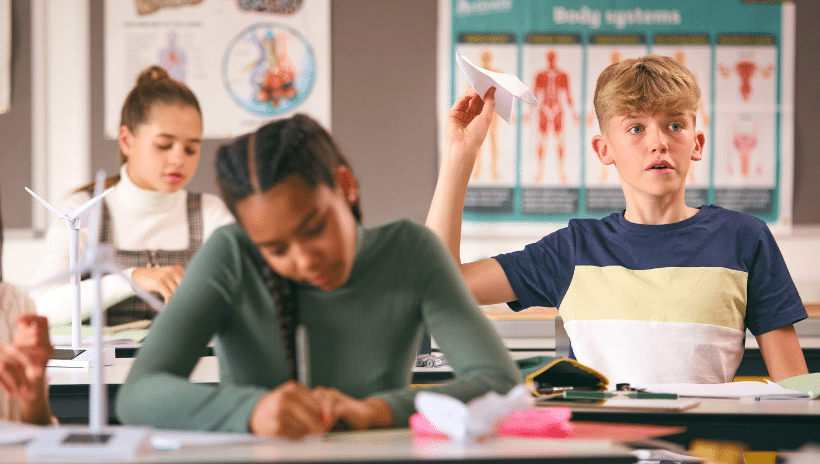
Since 2010, the National Association of Independent Schools (NAIS) releases an annual trend book that examines timely topics impacting the K-12 private and independent school community. The 2024-25 Trendbook cites student experience as one of the top priorities for the coming year. While student experience is always a priority, NAIS asserts that it’s more important now than ever — and we’d have to agree.
Today’s students are increasingly acting out, likely in response to underlying factors like mental health and global strife. As schools experience heightened levels of student disruption, it’s important to take a step back and focus on how we can better support our students and motivate them to succeed.
The Rise of Student Disruption
Between the COVID-19 pandemic, political conflicts, gun violence, and climate change, the last few years have seen one high-stress event after the next. It’s clear that these stressors are taking a toll on our youth.
In a November 2023 NAIS survey, 63 percent of independent elementary school teachers reported an increase in student behavioral issues. When broadened to include middle and upper school students, 52 percent of teachers reported a rise in behavioral issues.
Why the sudden rise? According to the 2024-25 Trendbook, one hypothesis is that students missed out on key developmental milestones during the pandemic due to stress and isolation. School-aged children are experiencing heightened rates of anxiety, depression, obsessive-compulsive disorder, ADHD, and tics than before COVID-19. Additionally, children ages six to 12 are experiencing more self-esteem issues, eating disorders, and difficulty regulating their emotions compared to pre-pandemic levels.
Emphasize Social-Emotional Learning
Some schools are responding to these behavioral trends with an emphasis on social-emotional learning (SEL). The Collaborative for Academic, Social, and Emotional Learning defines SEL as “the process through which all young people and adults acquire and apply the knowledge, skills, and attitudes to develop healthy identities, manage emotions and achieve personal and collective goals, feel and show empathy for others, establish and maintain supportive relationships, and make responsible and caring decisions.”
Educators are approaching their classrooms with a whole child approach to support not only their students’ academic needs, but their mental, emotional, social, and physical needs.
Recognize Positive Achievements
Beyond SEL, schools are broadening their view of behavior management to include both positive and negative behavior. With limited bandwidth, teachers are often strapped for time and may only have the capacity to respond to negative student behavior.
If a student is only recognized for negative behavior, they will likely continue to act out in pursuit of this attention. By acknowledging positive actions and progress, it shows students that they can be recognized for following classroom guidelines and encourages repeated good behavior. Positive reinforcement also helps strengthen bonds between students and staff, creating a healthy classroom environment.
Collaborate with Families
Evidence shows that parent-teacher collaboration is essential to a student’s success. When a teacher only shares negative behavior with a parent, it can lead to animosity from the student.
By communicating regularly about both positive and negative student behavior, teachers and families can work together to support and motivate their students. This partnership can also help create a shared sense of responsibility and community.
Manage Student Behavior with ePraise
With heightened levels of student disruption and a clear need for mental and emotional support in our classrooms, many schools are reimagining their approach to student behavior management. By emphasizing social-emotional learning, positive achievements, and family collaboration, educators can spend less time managing disruptive students and more time teaching students valuable skills and knowledge.
Looking for a better way to manage student behavior? Meet ePraise, the award-winning student behavior management and motivation platform from Veracross. ePraise helps schools track positive and negative behavior, award points and rewards, collect student concerns, and communicate with families — all in one user-friendly platform. Watch our on-demand webinar for an introduction and learn how ePraise can transform your classroom.



